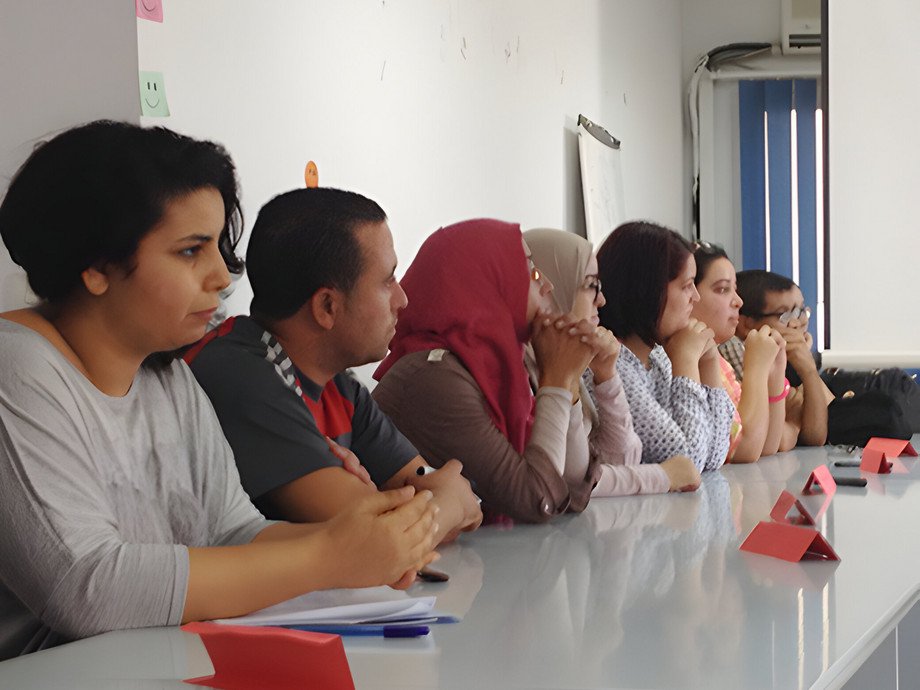
Context and relevance
Youth unemployment and underemployment are two major socio-economic challenges that many emerging countries face today. Tunisia is a prime example of this problem in the MENA region, with youth unemployment rates amounting up to more than 30 percent in recent years. Lack of economic, social and political opportunities have been identified as a key explanation for the 2011 revolution and the latest violent uprisings.
To improve the employability of (young) Tunisian citizens, the Ministry of Vocational Training and Employment has developed “Accompagnement”, a combined job search assistance and job placement program, part of a broader government initiative to help (young) Tunisians find a job. The program aims to help job-seekers to become more motivated and more efficient in their search for finding a job through counseling, orientation and competency tests, coaching on search efforts, training in writing a c.v. and application letter, how to prepare for an interview, and engage in match-making events with future employers.
"Accompagnement" will last for up to 18 months and is implemented gradually in all regional employment (“BETI”) offices across Tunisia. The program is expected to improve job-seekers’ chances of finding and maintaining a job (including self-employment), contribute to better-quality contracts and higher earnings.
This is one of the few Active Labor Market Policies (ALMPs) in the MENA region that are pilot-tested using a rigorous design that allows us to find out whether and under which conditions such programs (may) work. The results of our study are of immediate relevance for governments, business representatives and employment offices that intend to implement job search assistance and (or) job placement programs to reduce unemployment and improve well-being.
Evaluation questions of interest
The key question of interest is whether Accompagnment is effective in improving labour market outcomes for (young) Tunisian citizens. We will measure the impact of the program on outcomes related to (i) knowledge and skills formation, job search behavior, employment (e.g. type of employment and earnings) (ii) socio-psychological well-being (e.g. self-confidence, aspiration, empowerment) and (iii) social networks.
Empirical data and methods
In absence of the possibility to randomize treatment across offices or individuals, we will use the DID Matching method as a powerful alternative to causally infer the impact of the program. We will compare (treatment) applicants to would-be (control) applicants. After matching on pre-treatment co-variates we will conduct baseline and endline surveys across representative samples of treated and non-treated job-seekers (2400 individuals in total) to estimate the difference-in-differences model. We will work with all 60 offices that have, or at least potentially have, sufficient capacity to implement "Accompagnement"and an additional 20 offices that will not start treatment within the next 12 months to assess and control for spillovers. We will use surveys, Focus Group Discussions, in-depth interviews, and monitoring information to collect data on key outcome indicators and relevant mediating variables. We will gauge whether impacts differ across groups that vary by gender, age and education.
The study design has been presented at the ILO and INSEAD Evidence Symposium: Promoting Entrepreneurship for Inclusive Growth and Decent Jobs which was held November 14-15 2016 in Abu Dhabi. This project is collaborative research between the University of Tunis, UNU-MERIT Maastricht, the International School of Business of Sfax and the University of Passau. The project is funded by the International Initiative for Impact Evaluation (3ie) and the International Labor Organization (ILO). The University of Passau is the grant holding institution and Prof. Michael Grimm is the principal investigator.
The University of Passau also published a press release (PDF) about this project (German version only).
Related Literature
| Principal Investigator(s) at the University | Prof. Dr. Michael Grimm (Lehrstuhl für Development Economics) |
|---|---|
| Project period | 15.09.2016 - 28.02.2019 |
| Website | http://www.wiwi.uni-passau.de/en/development-economics/research/a-randomized-evaluation-of-active-labor-market-policies-in-tunisia/ |
| Source of funding |
International Initiative for Impact Evaluation Inc. (3ie)
International Labour Office (ILO) > ILO Fund for Evaluation in Employment
|